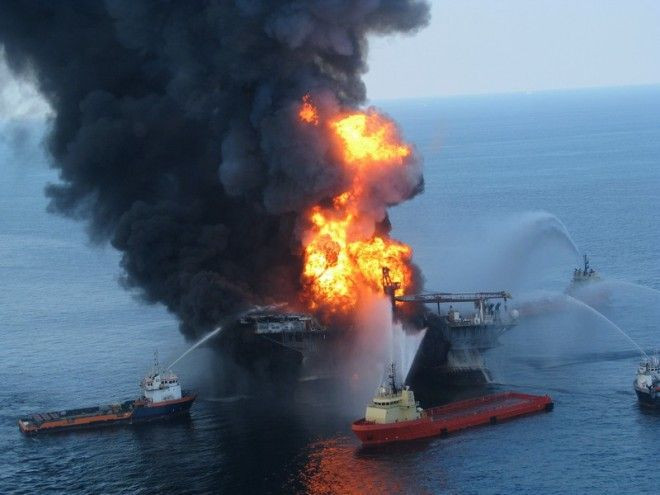U.S. Calls For Exercise In Gulf Of Mexico To Prevent Oil Spill Disasters

The Department of the Interior on Thursday called for a deepwater oil and natural gas containment exercise, designed to test the oil industry's readiness and capacity to respond to a future accident like the Deepwater Horizon in the Gulf of Mexico.
The Marine Well Containment Company, which is one of two suppliers of well-containment equipment to companies operating in the Gulf of Mexico, will be charged with testing a well's capping stack, the piece of equipment that stopped the flow of oil from the stricken BP production platform in 2010, after its blowout preventor failed to function and contributed to the biggest environmental disaster in U.S. history.
No date yet is set for the live exercise, but the DOI and the Bureau of Safety and Environmental Enforcement anticipate the test will take place this summer.
In the wake of the Deepwater Horizon explosion and oil spill, we undertook the most aggressive and comprehensive reforms to offshore oil and gas oversight in U.S. history, including requiring the industry to have immediate access to equipment and technologies that could stop another blowout, said Secretary of the Interior Ken Salazar.
Our safety reforms are designed to reduce the chances that a capping stack would ever be needed again, but one thing Deepwater Horizon taught us is that you must always be ready to respond to the worst case scenario. This exercise is an opportunity to deploy systems, test readiness, and train under real-time conditions, said Salazar.
The other supplier, Helix Well Containment Group, will conduct a similar test at a later date, said the DOI.
The live drill is intended to see how companies respond to the new reforms the offshore drilling industry must now adhere to following the 2010 Gulf of Mexico oil leak.
Companies are now required to assure regulators they, at any moment, have ready access to blowout preventors, the piece of equipment that failed on BP's Deepwater Horizon, and submit to an inspection by the Bureau of Ocean Energy Management of all deepwater drilling operations
The exercise will also test if the company can stick to its own deployment schedule as it lowers containment equipment by wire, and sets up other equipment to remove debris as well as collection mechanisms to capture seeping oil.
© Copyright IBTimes 2024. All rights reserved.





















